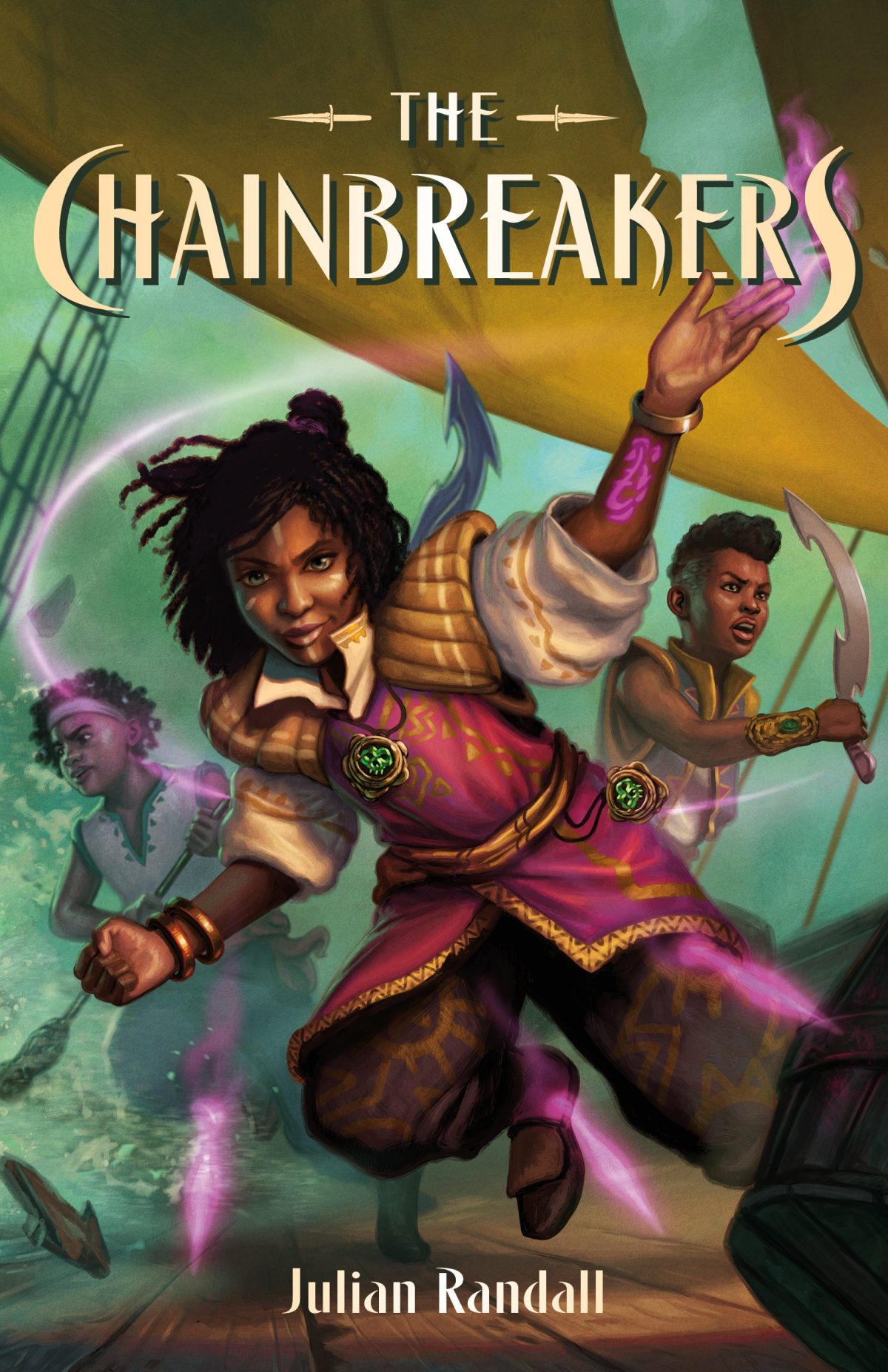My first memory of learning about slavery is the imagined cries of a baby whipped across the face beneath a merciless sun. I am five years old, seated in my father’s lap, the pages of And The People Could Fly by Virginia Hamilton splayed before me. The illustrations are sepia tone, the brown hues of an ending day. I remember seeing those endless rows of cotton, feeling terror; to see so many people who looked like me chained, abused, earthbound. I knew from some of my earliest memories that I came from a people with a long history of hurt; I wanted, more than anything, for them to fly away from that hurt.
And then, a few pages later, with magic and words they had nearly forgotten- they did.
Throughout my education, I returned to this story of Black people with their arms spread wide to the sun and their true names tucked beneath their tongue to keep them in the sky. I returned to this first proof that I came from magic people, Black, Black hands that, even in the face bondage, remembered they could fly. People who survived, but that wasn’t all. They laughed and held each other, dreamed and sang, they built their heaven wherever they found their feet. With Violet and her friends in The Chainbreakers, I hope I have created a story that can be a talisman to you as another story once was to me.
To learn of the ships of the Atlantic Slave Trade is to know the Atlantic is full of ghosts and teeth, for some of us. I wanted to make a heaven for the millions who died along those waters long before they reached the hell that awaited them in slavery. Growing up, so many of the few Black people I read about were only half-visible cloaked in the shadow of slavery. They were and weren’t like every Black person I knew and admired. These Black characters were in such pain and terror all the time, tragic everywhere and beautiful in only the briefest flashes. These characters were never powerful, never laughing; even what was meant to make me feel represented made me feel unrecognizable. All I wanted was for them to fly away; I wanted them to tap into the magic I knew they had, we had, and find the power to save themselves. Why couldn’t they remember the words? Why couldn’t I?
The Chainbreakers arrived to me as a vision of a Black girl standing at the prow of a massive ship. That turned out to be Violet but it has grown to be so much more as I have fallen in love with her people, my people now too, and her world beneath the waves. In class, as a kid, I would often sit on my hands while my teachers described the barbaric ships that stole Black people from their homes to enslave them. I heard the stories of how the dead were tossed from the hyper-crowded ships. I wondered if I was the only one who heard the waves, felt the nausea, the only kid transported to a time not my own. The Chainbreakers is book is about a hope I have that those who passed in the horrors of the Middle Passage found some peace in a world we have not seen. That they, like my family and so many others have for generations, found themselves in a new place with new terrors, new joys, and made home as best they could where they were. That they developed folktales, jokes and intense regional rivalries about how to properly season a fish- just like us. That they found the power to save themselves, time and again- just like us.
We do not live in a world without tragedy, without evil looking to erase and punish even the mention of that tragedy, without people who aspire to chain other people and call it ‘History.’ But, as writing Violet’s journey into the very heart of wickedness has taught me, we also live in a world with community, with joy, with the magic required to imagine a world without bondage. We can choose to remember and commit to building a more healing and generous world. We can choose to do more in this life than fighting to preserve what we have built from other people’s pain. It is why I choose to write to young people, some of the most generous, brave and brilliant readers in our world. You remind me, Violet, and all the characters I have written and will write in the future, that we weren’t built for tragedy, we were built to be each other’s greatest magic.
Thank you for being magic!
Julian Randall is a Living Queer Black author from Chicago. He has received fellowships from Cave Canem, CantoMundo, Callaloo, and the Watering Hole. Julian is the recipient of a Pushcart Prize and the winner of the 2019 Betty Berzon Emerging Writer Award from the Publishing Triangle. His writing has been published in New York Times Magazine, Ploughshares, and POETRY, and anthologized in Black Boy Joy (which debuted at #1 on the NYT Best Seller list), Wild Tongues Can’t Be Tamed, and Furious Flower. Julian has essays in The Atlantic, Vibe Magazine, Los Angeles Review of Books and other venues. They hold an MFA in poetry from University of Mississippi. Julian is the author of five books across three genres. For adults Refuse (Pitt, 2018), winner of the 2017 Cave Canem Poetry Prize and a finalist for a 2019 NAACP Image Award and the forthcoming The Dead Don’t Need Reminding: In Search of Fugitives, Mississippi and Black TV Nerd Shit (Bold Type Books, May 2024). For younger readers: the Pilar Ramirez duology and the middle grade novel The Chainbreakers (all from Holt Books for Young Readers).
